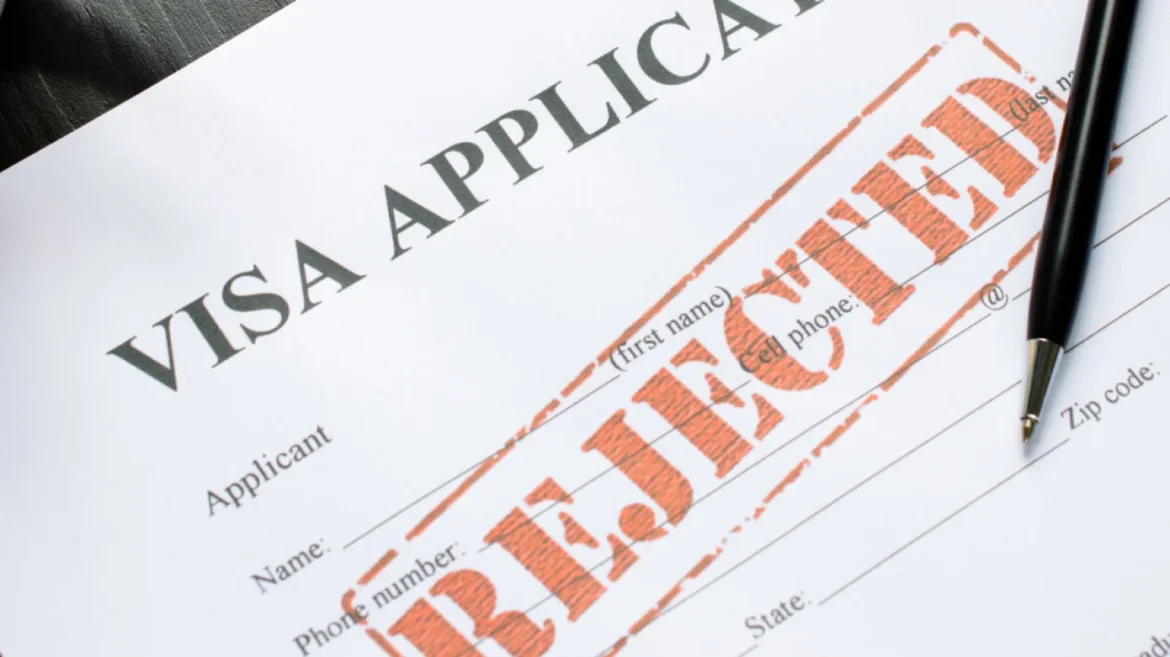Legal circles, as well as among impacted families, have paid close attention to UK visa rejection for Nigerians in recent months. One instance that especially jumps out is that of eminent Nigerian businessman Samuel Onyekachi Ibeawuchi running Bkay Security Ltd. This reputable company offers sportsmen, politicians, celebrities, and dignitaries both inside and outside of Nigeria close protection services. Along with his wife and 18-month-old son, Ibeawuchi applied for a typical UK travel visa, hoping to spend three weeks in the summer seeing his sister and her family back here.
The UK Home Office denied the visa application even though he turned in a thorough application, including financial records, company records, documentation of ties to Nigeria, and a thorough letter of sponsorship from his sister and brother-in-law. The refusal letter claims the Home Office was not happy that the family would depart the UK at the end of their tour. This denial has spurred fresh public debate on whether Nigerian candidates undergo unfair examination and possibly prejudice throughout the visa application process.
Table of Contents
ToggleDo Visa Refusals Follow Any Patterns?
The denial of UK visas for Nigerians seems to fit a larger trend that has alarmed the Nigerian diaspora, legal professionals, and human rights groups. Although the Home Office claims that every application is assessed individually and based just on the facts supplied, many Nigerians with legitimate travel intentions are finding themselves denied access on apparently arbitrary or contradictory grounds.
In the instance of the Ibeawuchi family, the denial was attributed to uncertainty about financial independence even in the presence of unambiguous data, including company records, bank accounts, and past trip experience. The Home Office also questioned the applicant’s links to Nigeria, even though both parents operate profitable companies there and had provided records to support this.
UK family members were shocked at the choice. Samuel’s sister, Hope Ibeawuchi-Beales, said that her kids were thrilled to see their cousin for the first time and that she had previously scheduled the family’s travel around the visit. Reiterating the validity of their sponsorship, her husband, Nick Beales, said the family has previously hosted relatives without any overstays or legal problems.
Many people believe that despite their compliance with all visa criteria, the rising number of such cases indicates that Nigerians are being unfairly targeted by ever-tighter immigration policies.
How Can Candidates Prevent Refusals?
Applicants should approach the visa application procedure with careful planning and strategic clarity to lower the possibility of a UK visa rejection for Nigerians. From form correctness to supporting document quality, every element counts. Financial accounts have to show not only enough resources but also consistent revenue and unambiguous employment or business ownership. Attaching any documentation proving significant ties to Nigeria, like property ownership, continuous company operations, or dependent family members who will remain in the nation, should clearly state the reason and length of their visit.
Applicants should also answer every point of issue brought up in all past refusals. Resubmitting an application unaltered is not likely to provide different results. Rather, reapplicants have to offer more proof or explanation, specifically addressing the Home Office’s rejection grounds. Seeking expert counsel from a skilled immigration consultant or solicitor will also help to improve the application and prevent typical errors.
Important also is knowledge of public policy discussions and present immigration patterns. If Nigerians are truly under more scrutiny under the present visa rules, keeping current on changing criteria can be a strategic advantage. Read another article on the UK Illegal Immigration Crackdown
How Might the Process be Enhanced?
Maintaining international ties and preserving the dignity of families wanting to see their loved ones depends on a fair and open visa application process. Unfortunately, the present rate of UK visa rejection for Nigerians compromises that aim. As the Ibeawuchi case shows, candidates who follow all rules and provide plenty of evidence are nonetheless turned down without apparent explanation. Particularly in cases when candidates have few choices for appeal or explanation, this breeds mistrust and irritation.
When she asked whether the denial officer had even perused the letter of invitation and associated documentation, Hope Ibeawuchi-Beales expressed a concern felt by many. She said she had previously effectively financed a number of family visits, all of which concluded with the visitors returning to Nigeria without issue. Many people have demanded a procedural change in response to this inconsistent decision-making.
The UK government has an increasing need to put in place a more open and responsible system so applicants may fully grasp the reasons for rejection. Giving applicants more thorough explanations and particular advice for reapplying will not only help them but also help to build system credibility. Immigration officials have to be taught to evaluate applications with cultural awareness and to avoid presumptions based just on nationality.
In essence, what should families do going forward?
The growing trend of UK visa rejection for Nigerians affects actual families and generates frequently unappreciated emotional and financial hardships, not only a bureaucratic one. Those Nigerians who intend to travel to the UK have to get more ready than ever. Strong documentation, clarity of goal, and proof of close ties to their native tongue are not only useful but also vital.
Governments also have an obligation at the same time to guarantee that immigration laws stay equitable, consistent, and free from prejudice. Not the exception but rather the standard should be open processes, honest communication, and polite handling of candidates. Any immigration system’s aim should be to combine national security with personal connection.
Both applicants and legislators need to participate positively as debates on the UK visa denial for Nigerians go on. Applicants should keep updated, fight for their rights, and take advantage of every chance to enhance their next applications. Immigration officials have to acknowledge the human consequences of their choices and aim for more process equity in parallel.


